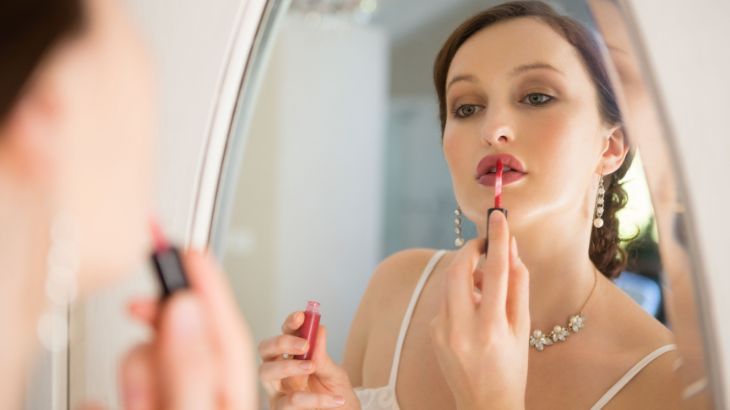Makeup artistry is an intricate craft that requires skill, creativity, and technical know-how. Whether you’re an aspiring makeup artist looking to kickstart your career or a beauty enthusiast aiming to enhance your makeup skills, enrolling in a professional makeup artist course can be a transformative experience.
In this blog post, we will delve into the world of makeup artist courses, highlighting their significance, the skills they impart, and the benefits they offer to aspiring makeup artists. Join us as we explore the diverse curriculum, training methodologies, practical experiences, career opportunities, and additional advantages associated with makeup artist courses.
Importance of Makeup Artist Courses
Makeup artist courses provide a structured learning environment where individuals can acquire a comprehensive understanding of makeup techniques, products, and industry trends. These courses are designed to equip students with the knowledge and skills necessary to excel in the competitive field of makeup artistry.
By enrolling in a reputable makeup artist course, students gain access to experienced instructors, industry insights, and hands-on training that can significantly enhance their artistic abilities.
A makeup artist course goes beyond the surface level of makeup application. It delves into the science behind makeup, such as understanding different skin types and conditions, colour theory and its practical applications, and the interaction between various cosmetic products and skin.
By delving into these aspects, students gain a deep understanding of the underlying principles of makeup artistry, enabling them to create looks that are not only aesthetically pleasing but also tailored to individual clients’ needs.

Curriculum and Skills Development
Makeup artist courses offer a wide range of modules and practical sessions that cover various aspects of makeup artistry. These include colour theory, skin analysis, makeup application techniques, special effects makeup, bridal makeup, editorial makeup, stage and theatre makeup, and more. The curriculum is designed to provide a comprehensive education, ensuring that students gain expertise in both basic and advanced makeup techniques.
Colour theory is an essential component of makeup artistry, as it helps artists understand the interplay of colours and how to create harmonious makeup looks. Students learn how to identify skin undertones, select suitable foundation shades, and create eye-catching colour combinations for different eye and lip looks.
In addition to colour theory, makeup artist courses focus on perfecting makeup application techniques. From mastering the art of flawless foundation application to creating intricate eye makeup looks, students are taught step-by-step processes for achieving professional results. They also learn contouring and highlighting techniques to enhance facial features, as well as eyebrow shaping and grooming to frame the face.
Courses also emphasize product knowledge, teaching students about different types of cosmetics, tools, and their proper usage. They learn about the properties of various makeup products, such as foundations, concealers, eyeshadows, blushes, and lipsticks, and how to select the most suitable products for different skin types and desired effects. Students also gain an understanding of the importance of maintaining clean brushes and tools for hygiene purposes.

Training Methodologies and Practical Experience
Makeup artist courses employ a combination of theoretical lessons, demonstrations, and hands-on practice to ensure a well-rounded learning experience. Instructors guide students through step-by-step tutorials, providing valuable feedback and personalised advice. These courses often include practical sessions where students work on models or fellow classmates, allowing them to refine their skills in a supervised setting.
Practical experience is crucial in developing proficiency in makeup artistry. Through hands-on practice, students gain confidence in their abilities to work with different skin tones, face shapes, and features. They learn how to adapt makeup techniques to suit individual clients’ needs and preferences, preparing them for the diverse requirements of the industry.
Advantages and Career Opportunities
Completing a makeup artist course opens up a world of career opportunities. Graduates can pursue various paths, including working in the fashion and entertainment industry, bridal makeup, film and television, editorial shoots, salon work, or even establishing their own freelance business. The skills acquired during the course, coupled with practical experience, provide a competitive edge in the job market.
Makeup artist courses also offer the advantage of networking opportunities. Connecting with industry professionals, fellow students, and guest lecturers can lead to valuable contacts and potential job prospects. Collaborative projects, internships, and workshops organised during the course provide platforms for building relationships with established makeup artists, photographers, stylists, and other industry insiders.

Makeup artist courses provide a comprehensive foundation for aspiring makeup artists, equipping them with the necessary skills and knowledge to excel in the industry. From mastering application techniques to understanding colour theory and product usage, these courses offer a holistic learning experience.
So, if you’re passionate about makeup and aspire to become a skilled professional, enrolling in a makeup artist course can be a transformative step towards achieving your goals.
Also Read: How to do Makeup for a Party ?
Hamstech is a renowned fashion design institute that offers comprehensive courses, practical learning opportunities, experienced faculty and a vibrant community. It provides students with the necessary skills, industry exposure and mentorship to excel in the competitive world of fashion.
Choosing Hamstech means joining a reputable institution that nurtures creativity and prepares students for successful careers in the industry. Enrol now!

